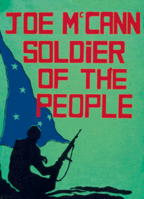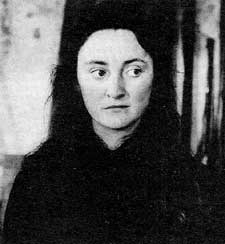Road to Freedom
+4
clagan
niall
Green2thecore
ElPaso
8 posters
Page 3 of 5
Page 3 of 5 •  1, 2, 3, 4, 5
1, 2, 3, 4, 5 
 Re: Road to Freedom
Re: Road to Freedom
fuck Kerry. they're a far better team so fair play to Cork for taking them to extra time in a replay, it was tight as a ducks arse. great second half.

clagan- Posts : 606
Join date : 2010-06-08
Location : Maryhill, looking stabbed?
 Re: Road to Freedom
Re: Road to Freedom
clagan wrote:we used to get let straight through El Paso, Ardoyne VIP's baaaaaaby.

ElPaso- Posts : 160
Join date : 2010-06-08
Location : Dundalk
 Re: Road to Freedom
Re: Road to Freedom
Brits Out!

Ghod- Posts : 119
Join date : 2010-06-12
Location : Annoyin the Apologists
 Re: Road to Freedom
Re: Road to Freedom
Annie Devlin was born at Cronbeg, near Rathdrum, Co Wicklow, in 1780. Even then feelings were high regarding the treatment of the majority of the Catholic population. Particular families were known nationalists and the Devlin family was one of them. Her father was known for his views and had on a number of occasions, stated them in public, a dangerous thing to do at the time. Her aunt, her mother’s sister, was married to a man named Dwyer and was the mother of the Wicklow rebel Michael Dwyer, which made Anne, Michael’s first cousin. Born in 1771, Dwyer was a rebel leader in 1798 and for years after the rising still gave the government trouble with his “hit and run” brigade. Anne must have heard stories from her parents and others of the doings of Dwyer and his band. She must also have been told of the great efforts of the O’Tooles and the O’Byrnes, with which her family were also connected, to attack the English forecast every opportunity. Despite their nationalistic views the Devlins raised their family to respect the law and they in turn were respected by all who knew them. They farmed a rented 30 acre farm and met their commitments as required. Their landlord was a Mr Thomas Darby and he was a very fair man. Mrs Darby’s sister (a Miss Leonard) became very fond of the young Anne and after her marriage to a Lieutenant Hempenstall, (a man hated by the locals and known as “The Human Scaffold”) she obtained permission from the Devlins for Anne to accompany her to her new home at Inchicore in Dublin. This was in 1797. After a few months her father realised things were getting worse and decided to take Anne home. Many think that he was actually a United Irishman and knew what was about to take place. It was after the 1798 rising, that her father was arrested and was put into the overcrowded Wicklow Jail. During this time the Devlins were often raided on account of their cousins, the O’Dwyers and the O’Byrnes. Two of Anne’s uncles and two cousins were also in prison. One of the O’Byrnes (Hugh) did escape but was later recaptured and executed. After over two years in prison her father petitioned for a retrial as no formal charge had been made against him personally. After the trail he was unexpectedly acquitted. It was after this that Anne’s father decided that it would be safer for the family to move, so, having given up his lease and parting on good terms from his landlord, the family moved to Rathfarnham in Co Dublin. Here he founded a dairy business and kept horses for hire to the local gentry. It gives food for thought when we remember Mr Devlin’s suspected association with the United Irishmen, as to why, early in this tragic year of 1803, a man by the name of Mr ET should take posession of a house near the Devlins, and why so many strangers were seen coming and going to the house. Perhaps the picture will become clearer when we learn that “Mr Ellis” was none other than Robert Emmet, the man who organised the failed rising later in that year. Actually one of the mysterious visitors to Emmets house was none other than Myles Byrne who had been one of the leaders in the 1798 rising with Fr John Murphy. Another angle on the connection between the Devlins and Emmet was the fact that Devlin gave Emmet a cow and a horse and cart to give the impression that he was well off and in the business. “Mr Ellis” now required the services of a housekeeper in his house in Butterfield Lane and asked his neighbour, Mr Devlin to advise him on the choice. It was now that another strange twist occurred in the saga that was to have such a tragic ending for those involved. Anne Devlin became the housekeeper at the house in Butterfield Lane and assumed the name of Emmet. It was now that things began to hot up as far as the planned rising was concerned. Meetings were held in the Emmet House, arms were collected and delivered to the centres in the city. It was probably at this stage that Myles Byrne was sent to France to seek the often promised but seldom sent help. Incidentally Myles Byrne never returned to Ireland and died in Paris at over 80 years of age. As for the rising, on the morning of July 23 1803, Emmet assembled his troops, just over 100 and far less than he expected and headed for Dublin Castle. On their way along Thomas Street they met the carriage of the Lord Chief Justice, Lord Kilwarden and instead of allowing it to pass and continuing on to the castle, the unruly mob, for that is what they were, killed the chief justice and his nephew and then scattered into the side streets and disappeared. Realising his rebellion was a failure Emmet escaped and fled to the Wicklow mountains. On Tuesday, July 26 Anne Devlin and her eight year old sister were questioned roughly by a group of Yeomen at the house in Butterfield Lane. They were treated roughly by the soldiers and almost hanged. After the yeomen had left Anne realised she could, not stay any longer in the house and went to the house of her first cousin Michael Dwyer’s sister, whose husband John O’Neill ran a dairy business at Newmarket in the Coombe. A couple of days later they were all arrested and taken to the Coombe Guardhouse. After four days they were released and returned to the house in Newmarket. After a few days, Anne’s brother, Art brought her back to the family home in Rathfarnham. If they thought that this was end of their troubles they were mistaken. During that night the house was surrounded by a party of soldiers, horse and foot. The whole Devlin family was arrested, father and mother, three brothers two sisters and herself, (her youngest brother is said to have been covered in smallpox). Anne was identified by a stableman from the White Bull Inn in Thomas Street and questioned by Major Sirr, who now realised the importance of his prisoner. Anne refused to talk despite the fact that Sirr tried to bribe her with £500, a fortune at that time. The Governor of Kilmainham Jail, who was noted for his method’s of extracting information also questioned her but got nothing. This was on August 29, 1803. It was during her time in the Castle, unknown to her, that Emmet was arrested in a house in Harold’s Cross. Major Sirr now had a warrant issued against Anne for high treason. This could mean death for Anne if she were convicted. She was now transferred to Kilmainham Jail and it was here that she was to meet Emmet for the last time. During a brief conversation, he begged her to give information about him as he was already a dead man, but she refused, saying that she could not bring herself to be an informer. Robert Emmet was hanged in Thomas St on the 21 October 1803. Anne was taken to the place of execution and forced to watch as the last moments of life were taken from Emmet’s body. She was then taken back to the jail where the man known as “The Devil’s Partner”, Dr Edward Trevor: used every device imaginable to break her down and get her to tell where Emmet’s hiding places had been and who were his companions. All his efforts, including physical and mental torture, were in vain Anne’s spirit could not be broken. His treatment of Anne was so excessive that an investigation into his and others methods was called for but no further action was taken. Anne was eventually released in 1806 and found employment as a companion to Mrs Elizabeth Hammond at 84 Sir John Rogersons Quay, a position she was to hold for four years. The Devlin family had also suffered at the hands of the inquisitors and had been broken in many ways. They only lived a few years after their terrible ordeal. Anne now survived by taking in washing and other work and later married a man named Campbell. For a few years Anne new peace and love and was the mother of two children, a boy and a girl and both are said to have ended up in strange circumstances. Mr Campbell died in 1845, and Anne was once again left alone. The sad part of her position was that now she was too sick to work and almost blind. She ended her days in dire poverty in a miserable hovel near the Coombe at No 2 Little Elbow Lane in the area known as the Liberities. She died in obsecurity on September 16 1851. Anne Devlin was one of the unsung heroines of Irish history. She suffered as much, and perhaps more, than many of the men of earlier and later times whose names are now spoken of as the men who died for Ireland. Perhaps they did, perhaps They were great men, but were any greater than Anne Devlin ,From Willy White The Carlow



Ghod- Posts : 119
Join date : 2010-06-12
Location : Annoyin the Apologists
 Re: Road to Freedom
Re: Road to Freedom
Justice?
Kevin Heatley 13 years, Second Avenue, Derrybeg estate, Newry, Co. Down, shot dead on 28 February 1973, by members of the British Army’s Royal Hampshire Regiment.
Kevin Heatley was one of a family with 6 children and attended St. Joseph’s Secondary School in Newry. To his friends he was known as ‘Beansy.’ One friend described ‘Beansy’ as a ‘jovial outgoing boy who was always full of crack, wit and stories.’
On the evening of Tuesday 27 February 1973, residents of the Derrybeg estate witnessed numerous incidents of harassment from British troops patrolling the area. The harassment had been ongoing in the area over a period of days. Shortly before mid-night a force of British soldiers rushed into the estate shouting and blowing whistles. None of the soldiers were wearing berets, concealing the identity of their regiment. Residents said some of the soldiers were also under the influence of alcohol.
The loud whistling and shouting resulted in residents coming out of their homes to investigate. Kevin was with several friends at Main Avenue sitting on a garden wall of a house chatting and watching the antics of the soldiers. Suddenly, just after mid-night on 28th, a shot rang out and Kevin fell off the wall. A soldier who was standing about 150 yards from where Kevin was sitting fired the shot.
When Kevin’s friends examined him they quickly discovered he had been shot in the head. Residents in the street ran to his aid, and after a time obtained a small van and took him to the hospital. He was carried into the casualty department at 12.45am, but he died shortly afterwards.
Several witnesses to the shooting later told their stories to the local Press. One witness described how one British soldier was acting ‘a bit mad.’ The witness said that ‘when the patrol moved up the street two or three bottles were thrown. The next thing there was a crack, which I knew was a rifle shot. When the boy fell I thought he had just lost balance but someone coming from behind said he was shot. There were about four or five people standing where the young fellow was shot.’ Previous to the shooting the witness said British soldiers had given a young man a beating in the estate. The witness was sure there had been no firing at the British soldiers before the shooting of Kevin. The witness said ‘the boy was shot in cold blood.’
Another witness, Patrick McCloskey, said he was about 20 yards from Kevin Heatley when he heard a shot. He said he ran over and lifted the boy up and saw the blood pouring from his head. The boy was still breathing and he helped to take him to hospital. Mr McCloskey said ‘the boy had no gun. The child would not know how to use one if he had.’ He added that he heard only one shot, and that the soldiers blew whistles.
Mrs Margaret Haughey said she and her sister and a friend were just entering the estate when a British army foot-patrol came along. Members of the patrol took up positions at the shops. Then one soldier walked from the shops to the beginning of Main Avenue. He aimed his rifle and fired one shot, but Mrs Haughey and her companions thought it was a rubber bullet. She then shouted to the soldier who fired the shot ‘Are you at it again?’ as he walked back to his colleagues. Mrs Haughey said none of the British soldiers present in the estate at the time of the shooting were wearing berets or any headgear, and that they were blowing whistles. She also said after the shooting, as she and her companions walked behind the soldier who fired the shot, the soldier said he was Irish and came from Belfast.
Mrs Larkin, who was with Mrs Haughey, also spoke to the soldier who fired the shot. She said to him ‘You have a drink on you,’ and he replied, ‘I have had a few beers, do you deny a man a drink.’
Mrs Larkin described the Royal Hampshire Regiment, which had been in the Newry area since November 1972, as the worst regiment they ever had. The soldiers were always blowing whistles to bring people out on to the streets.
The Royal Hampshire Regiment issued a statement several hours after the shooting claiming ‘it is normal practice for the army to carry out an administrative enquiry.’ The statement rejected the allegations of British soldiers involved in the shooting were under the influence of drink, and totally without foundation.
The statement went on to detail events surrounding the shooting, claiming that ‘at 20 minutes to 1am on Wednesday morning a patrol of the Royal Hampshire’s was leaving the Derrybeg estate and was going down towards the Meadow estate when it was fired on by one round from the road junction of Second Avenue and Main Avenue. The patrol was hindered in their investigation by a crowd of about 50 people who had gathered between the patrol and the street corner. About 20 minutes later, at 1am, the company commander arrived and two houses were searched in Main Avenue. Nothing was found in the search and all the patrol withdrew.’
A further brief statement issued from the British army’s HQ at Lisburn followed. They claimed one shot had been fired at the army patrol and a gunman was hit when fire was returned.
Patrick O’Hanlon, an MP for the area, joined local residents in rejecting the British army statements. Mr O’Hanlon said ‘I have absolutely no doubt that the evidence will prove conclusively that this young boy was murdered and that the British army is telling lies.’
Mr O’Hanlon later held an interview with the local Press and played for them an audio tape recording of events in the Derrybeg estate at the time Kevin was shot. The recording contained the sounds of shouting and whistle blowing, but only a single shot was heard. Mr O’Hanlon demanded an inquiry.
Some eight months after Kevin Heatley’s death corporal Francis Foxford, a member of the Royal Hampshire Regiment was charged with the manslaughter of the boy. Foxford went for trial in March 1974. At his trial he claimed a crowd attacked his patrol and a ‘small person’ fired him on and he returned fire. Civilian witnesses giving evidence rejected the claims of Foxford and his colleagues.
The trial judge found corporal Foxford guilty of the lesser charge of unlawful killing and sentenced to three years imprisonment. The judge in his summing up described Foxford’s evidence as unreliable and unsatisfactory, and said that other soldiers had also given false evidence to the court to protect Foxford.
Shortly after he was sentenced Foxford was transferred to a prison in England. On his arrival there he immediately lodged an appeal against his conviction and was given bail.
In June 1974 Foxford returned to Belfast to have his case heard in the Court of Criminal Appeal. The appeal went in his favour and the conviction was quashed. The judges said the reason for the decision were ‘irregularities in Crown procedure at the trial and it was impossible to say that the conviction would inevitably have followed had the irregularities not occurred.’
The ‘irregularities’ the judges spoke of involved the Crown Prosecution closing its case against the accused without tendering the evidence of two British army witnesses, which, the appeal judges said ‘introduced an impunity into the stream of justice which no procedural step could thereafter extract.’
Foxford was therefore released and returned to England and his regiment.
Over 18 months after Kevin’s death his mother Kathleen was given £943 compensation by the Northern Ireland Office for the lost of her son. Mrs Heatley later said she felt physically sick when she returned home that day from the court.
After Foxford’s release on a technicality no other British soldiers were charged in connection with the killing of Kevin Heatley.
Kevin Heatley 13 years, Second Avenue, Derrybeg estate, Newry, Co. Down, shot dead on 28 February 1973, by members of the British Army’s Royal Hampshire Regiment.
Kevin Heatley was one of a family with 6 children and attended St. Joseph’s Secondary School in Newry. To his friends he was known as ‘Beansy.’ One friend described ‘Beansy’ as a ‘jovial outgoing boy who was always full of crack, wit and stories.’
On the evening of Tuesday 27 February 1973, residents of the Derrybeg estate witnessed numerous incidents of harassment from British troops patrolling the area. The harassment had been ongoing in the area over a period of days. Shortly before mid-night a force of British soldiers rushed into the estate shouting and blowing whistles. None of the soldiers were wearing berets, concealing the identity of their regiment. Residents said some of the soldiers were also under the influence of alcohol.
The loud whistling and shouting resulted in residents coming out of their homes to investigate. Kevin was with several friends at Main Avenue sitting on a garden wall of a house chatting and watching the antics of the soldiers. Suddenly, just after mid-night on 28th, a shot rang out and Kevin fell off the wall. A soldier who was standing about 150 yards from where Kevin was sitting fired the shot.
When Kevin’s friends examined him they quickly discovered he had been shot in the head. Residents in the street ran to his aid, and after a time obtained a small van and took him to the hospital. He was carried into the casualty department at 12.45am, but he died shortly afterwards.
Several witnesses to the shooting later told their stories to the local Press. One witness described how one British soldier was acting ‘a bit mad.’ The witness said that ‘when the patrol moved up the street two or three bottles were thrown. The next thing there was a crack, which I knew was a rifle shot. When the boy fell I thought he had just lost balance but someone coming from behind said he was shot. There were about four or five people standing where the young fellow was shot.’ Previous to the shooting the witness said British soldiers had given a young man a beating in the estate. The witness was sure there had been no firing at the British soldiers before the shooting of Kevin. The witness said ‘the boy was shot in cold blood.’
Another witness, Patrick McCloskey, said he was about 20 yards from Kevin Heatley when he heard a shot. He said he ran over and lifted the boy up and saw the blood pouring from his head. The boy was still breathing and he helped to take him to hospital. Mr McCloskey said ‘the boy had no gun. The child would not know how to use one if he had.’ He added that he heard only one shot, and that the soldiers blew whistles.
Mrs Margaret Haughey said she and her sister and a friend were just entering the estate when a British army foot-patrol came along. Members of the patrol took up positions at the shops. Then one soldier walked from the shops to the beginning of Main Avenue. He aimed his rifle and fired one shot, but Mrs Haughey and her companions thought it was a rubber bullet. She then shouted to the soldier who fired the shot ‘Are you at it again?’ as he walked back to his colleagues. Mrs Haughey said none of the British soldiers present in the estate at the time of the shooting were wearing berets or any headgear, and that they were blowing whistles. She also said after the shooting, as she and her companions walked behind the soldier who fired the shot, the soldier said he was Irish and came from Belfast.
Mrs Larkin, who was with Mrs Haughey, also spoke to the soldier who fired the shot. She said to him ‘You have a drink on you,’ and he replied, ‘I have had a few beers, do you deny a man a drink.’
Mrs Larkin described the Royal Hampshire Regiment, which had been in the Newry area since November 1972, as the worst regiment they ever had. The soldiers were always blowing whistles to bring people out on to the streets.
The Royal Hampshire Regiment issued a statement several hours after the shooting claiming ‘it is normal practice for the army to carry out an administrative enquiry.’ The statement rejected the allegations of British soldiers involved in the shooting were under the influence of drink, and totally without foundation.
The statement went on to detail events surrounding the shooting, claiming that ‘at 20 minutes to 1am on Wednesday morning a patrol of the Royal Hampshire’s was leaving the Derrybeg estate and was going down towards the Meadow estate when it was fired on by one round from the road junction of Second Avenue and Main Avenue. The patrol was hindered in their investigation by a crowd of about 50 people who had gathered between the patrol and the street corner. About 20 minutes later, at 1am, the company commander arrived and two houses were searched in Main Avenue. Nothing was found in the search and all the patrol withdrew.’
A further brief statement issued from the British army’s HQ at Lisburn followed. They claimed one shot had been fired at the army patrol and a gunman was hit when fire was returned.
Patrick O’Hanlon, an MP for the area, joined local residents in rejecting the British army statements. Mr O’Hanlon said ‘I have absolutely no doubt that the evidence will prove conclusively that this young boy was murdered and that the British army is telling lies.’
Mr O’Hanlon later held an interview with the local Press and played for them an audio tape recording of events in the Derrybeg estate at the time Kevin was shot. The recording contained the sounds of shouting and whistle blowing, but only a single shot was heard. Mr O’Hanlon demanded an inquiry.
Some eight months after Kevin Heatley’s death corporal Francis Foxford, a member of the Royal Hampshire Regiment was charged with the manslaughter of the boy. Foxford went for trial in March 1974. At his trial he claimed a crowd attacked his patrol and a ‘small person’ fired him on and he returned fire. Civilian witnesses giving evidence rejected the claims of Foxford and his colleagues.
The trial judge found corporal Foxford guilty of the lesser charge of unlawful killing and sentenced to three years imprisonment. The judge in his summing up described Foxford’s evidence as unreliable and unsatisfactory, and said that other soldiers had also given false evidence to the court to protect Foxford.
Shortly after he was sentenced Foxford was transferred to a prison in England. On his arrival there he immediately lodged an appeal against his conviction and was given bail.
In June 1974 Foxford returned to Belfast to have his case heard in the Court of Criminal Appeal. The appeal went in his favour and the conviction was quashed. The judges said the reason for the decision were ‘irregularities in Crown procedure at the trial and it was impossible to say that the conviction would inevitably have followed had the irregularities not occurred.’
The ‘irregularities’ the judges spoke of involved the Crown Prosecution closing its case against the accused without tendering the evidence of two British army witnesses, which, the appeal judges said ‘introduced an impunity into the stream of justice which no procedural step could thereafter extract.’
Foxford was therefore released and returned to England and his regiment.
Over 18 months after Kevin’s death his mother Kathleen was given £943 compensation by the Northern Ireland Office for the lost of her son. Mrs Heatley later said she felt physically sick when she returned home that day from the court.
After Foxford’s release on a technicality no other British soldiers were charged in connection with the killing of Kevin Heatley.


ElPaso- Posts : 160
Join date : 2010-06-08
Location : Dundalk
 Re: Road to Freedom
Re: Road to Freedom
SO heres to the boys of Kilmichael

Ghod- Posts : 119
Join date : 2010-06-12
Location : Annoyin the Apologists
 Re: Road to Freedom
Re: Road to Freedom
Prisoners in the Kesh 1970s

IRA 1986

Thomas McElwee's funeral


IRA 1986

Thomas McElwee's funeral


GalwayBhoy- Posts : 130
Join date : 2010-06-12
Location : Galway
Page 3 of 5 •  1, 2, 3, 4, 5
1, 2, 3, 4, 5 
Page 3 of 5
Permissions in this forum:
You cannot reply to topics in this forum|
|
|














